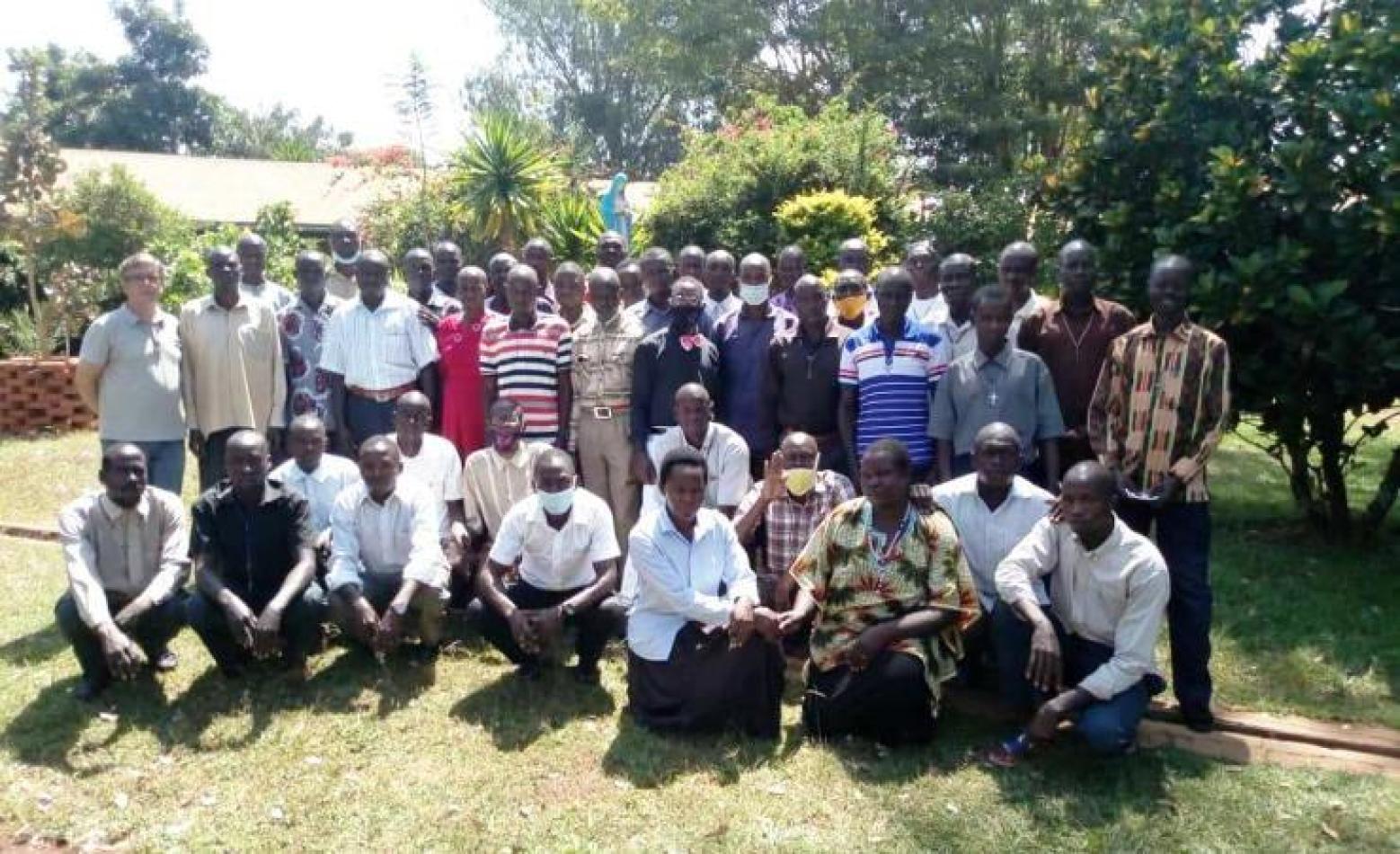Daniele Comboni
Missionari Comboniani
Area istituzionale
Altri link
Newsletter
Friday, August 4, 2023
The formation of catechists in the diocese of Lira in northern Uganda involves Father José Juan Valero Maciá, Spanish Comboni missionary, full time who explains the path to becoming animators of Christian communities. [Comboni Missionaries]
I have been in Uganda for 18 years and have always worked in the diocese of Lira, in the north of the country. During my first stint, between 1997 and 2009, I had to endure the harsh reality of guerrilla warfare, kidnappings, and violence caused by Joseph Kony’s infamous Lord’s Resistance Army (LRA).
Fortunately, peace enabled the dismantling of the IDP camps in 2011 and when I returned to Uganda in 2016, I found a very different reality. Kampala has developed and abounds in skyscrapers, hotels, and shopping malls, while in the northern rural areas, many of the people’s mud and thatched huts have been converted into brick dwellings with tin and zinc roofs. Society lives more calmly, even if some traumas of war persist.
Some kidnapped boys and girls have never returned home, and their parents are still searching for their lost children. Among the young people born and raised in refugee camps, I see abuses in the consumption of alcohol, hashish, and other local drugs. Many others, however, have turned the page and moved on.
Upon my return, I spent the first two years in the diocesan Shire of Iceme, dedicated to Mary, Mother of the Church. There I was able to contact thousands of pilgrims who came on foot, in groups or individually, bringing with them their joys, anxieties, and worries. Since I know Lango, the local language, I was always willing to listen to them, so many people came to talk to me. Arriving at a pilgrimage site, people hope that someone will listen to them and pay attention to what they are experiencing. This ministry has been a great enrichment for me.
In 2018 I was appointed head of the San Juan Bosco de Ngetta Catechetical and Pastoral Centre, where I now live and from where we organize the training of catechists in the diocese of Lira. In Africa, catechists are full-time community leaders and need to acquire some basic knowledge.
To achieve this objective, initial formation is offered to them in each of the six large vicariates in which our diocese is structured. Aspiring catechists undergo two years of formation, with three three-week periods a year in one of the large parishes of the vicariate. At the end of the two-year period, they are established as catechists or assistant catechists in their communities.
A second period of training takes place in the Ngetta centre with catechists who, in addition to having completed their training in the vicariates, have also spent time serving in the communities. At present, there are 225 student catechists in the vicariates and 41 in the centre.
Training at the Ngetta centre lasts three years, with three ten-week periods each year. The catechists come to the centre and undergo training in various subjects. Naturally, there is no shortage of biblical, liturgical, and sacramental courses, indispensable for carrying out their functions as animators in liturgical celebrations. But, in addition, there is training in the foundations of psychology, discernment and accompaniment of people, spirituality, homiletics, notions of economics, and other social skills.
At the end of the three years of formation, the diocesan bishop comes to the centre to preside over a celebration in which catechists are sent as evangelizers to bring the Good News to their communities. Catechists are essential for the mission in a large and populated diocese like ours. Furthermore, they are not limited to accompanying the life of the communities in a Christian way but are authentic promoters of social advancement.
Furthermore, they advise people how to create small cooperatives to buy seeds and sell agricultural products together, to avoid abuses and to be better paid. I feel very happy and fulfilled. My mission as an animator of animators, to help these people be the protagonist of their own stories motivates me a lot. We offer them basic training and they enrich it with their own initiative, also through some monographic and recycling courses that we organize from time to time at the St John Bosco Centre.
At the moment, the third-year catechists are finishing their exams and will soon go home for a month and a half. They will then have to return to the centre for another ten-week training period. We always try to make the holidays coincide with the busiest times of work in the fields. Catechists cannot live on the little help they receive from their Christian communities or what the diocesan Church contributes, so they need to cultivate their land or raise animals to supplement their sources of income. Being a catechist is a true vocation and they are not considered employees. They know it and work like everyone else to earn a living.




